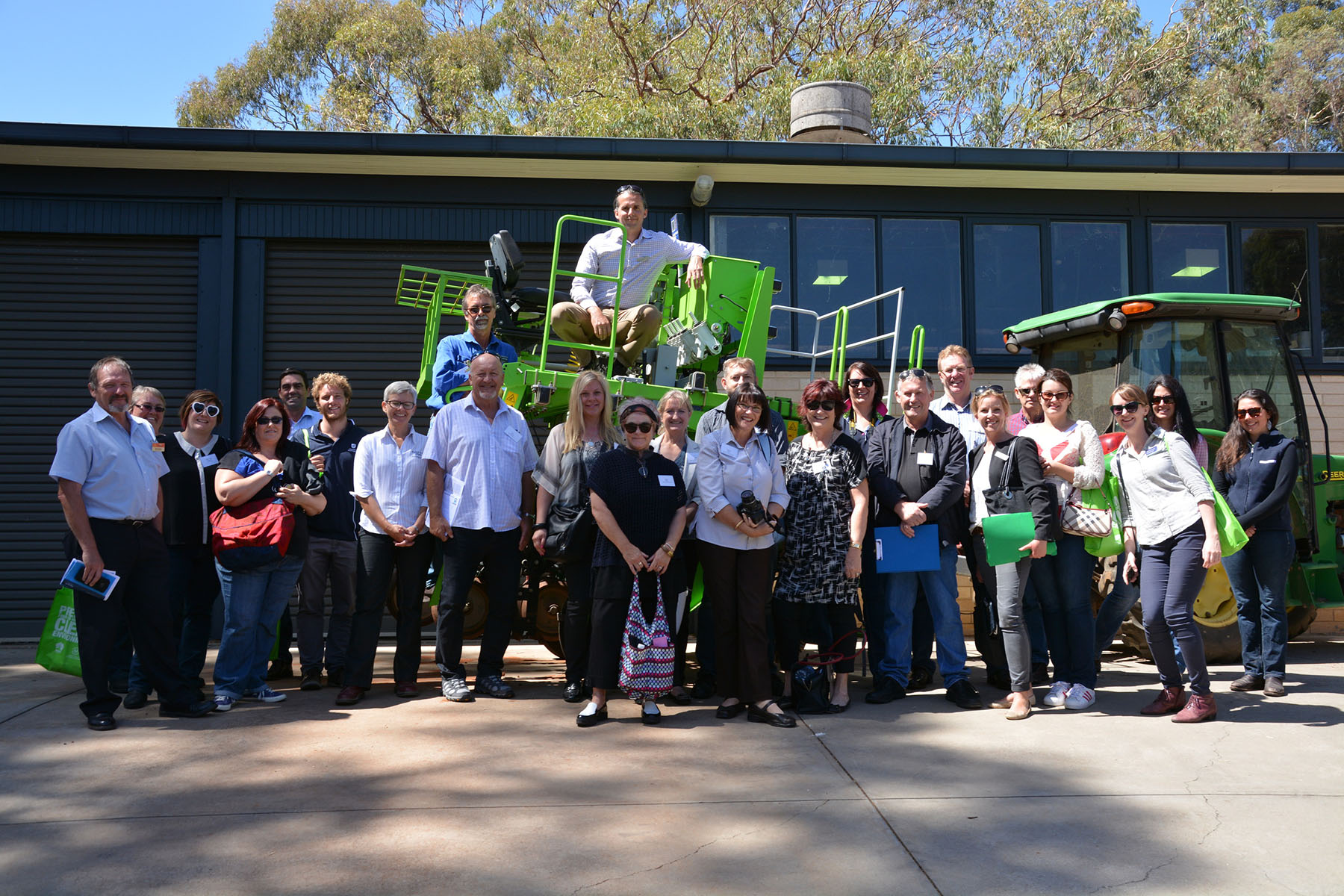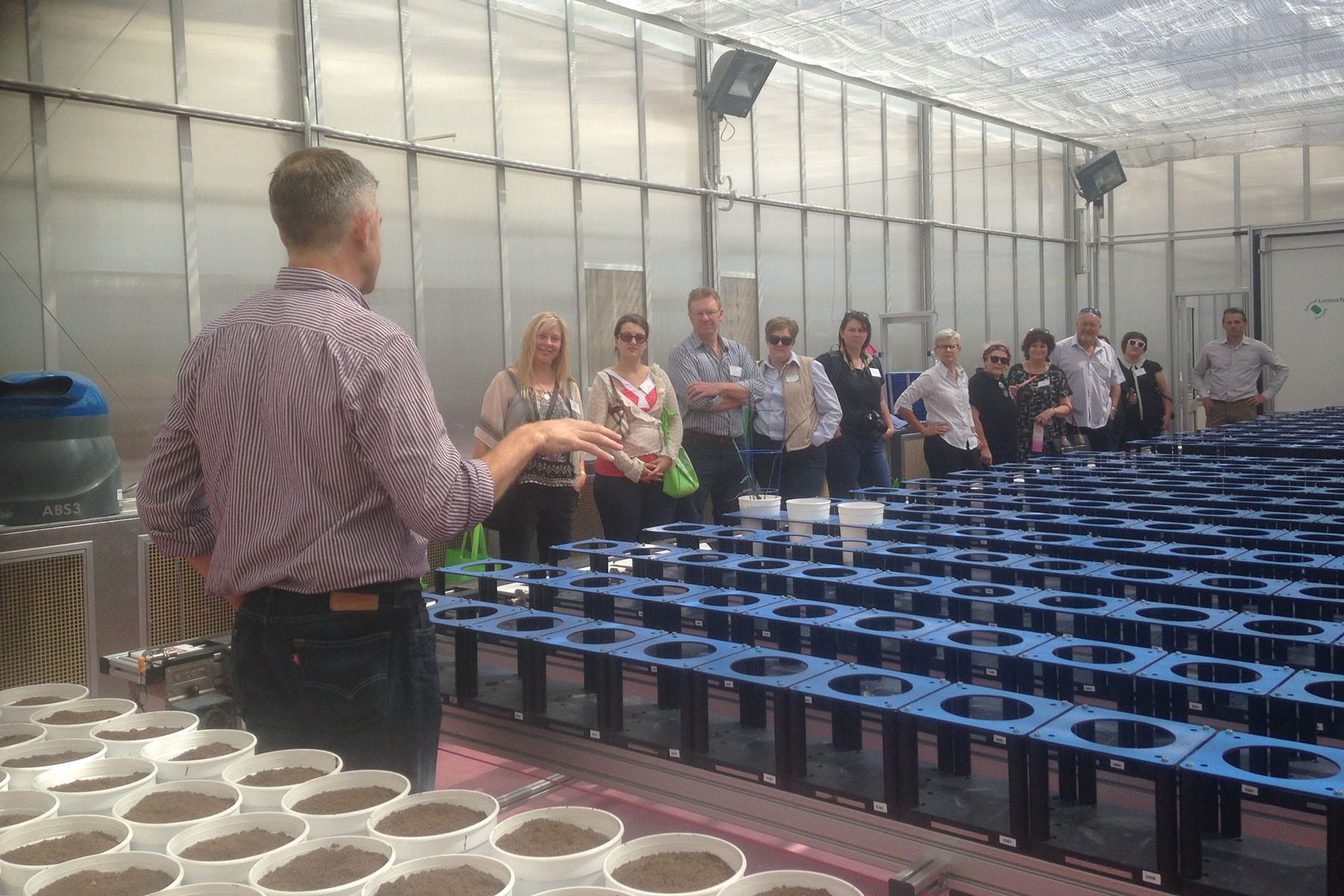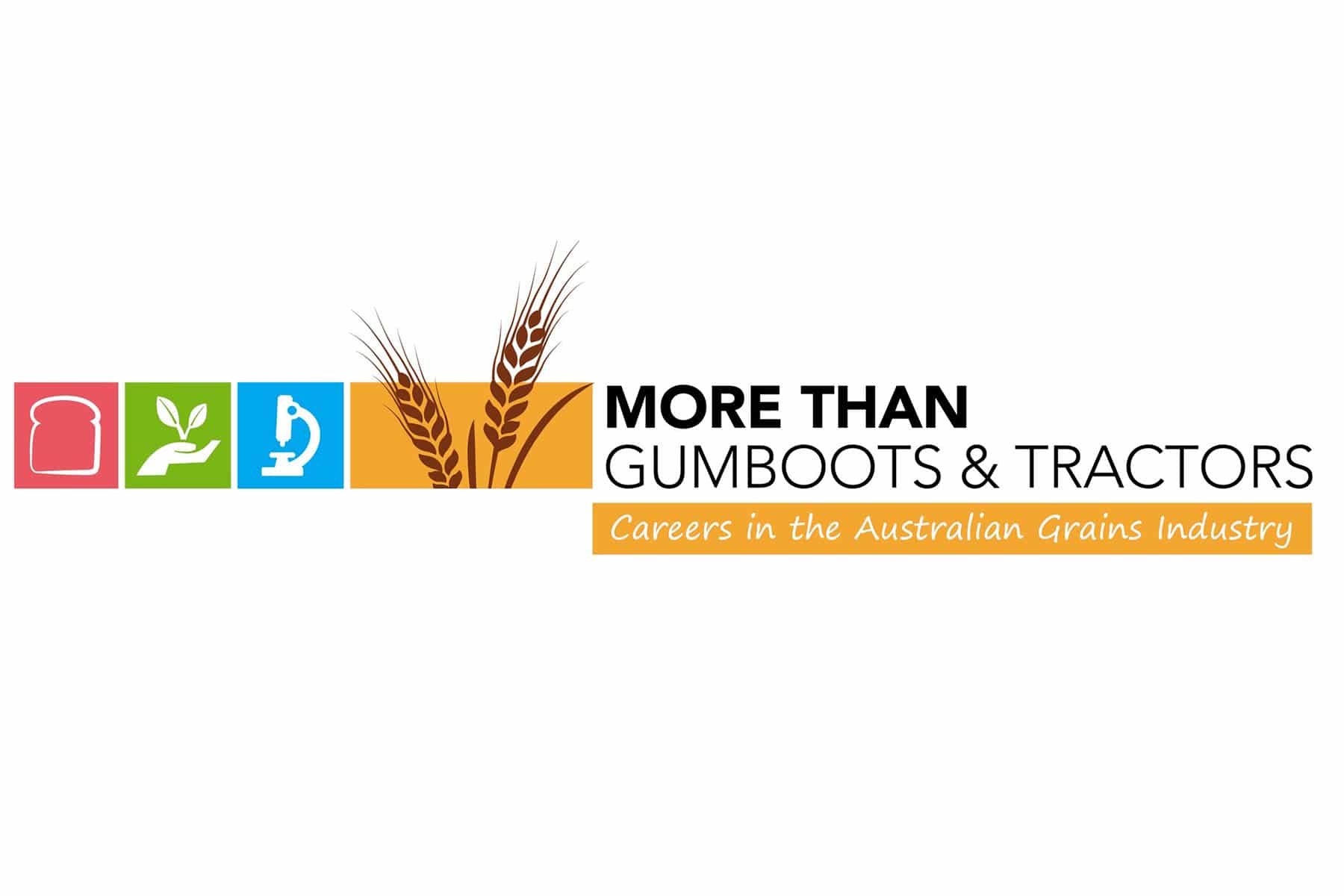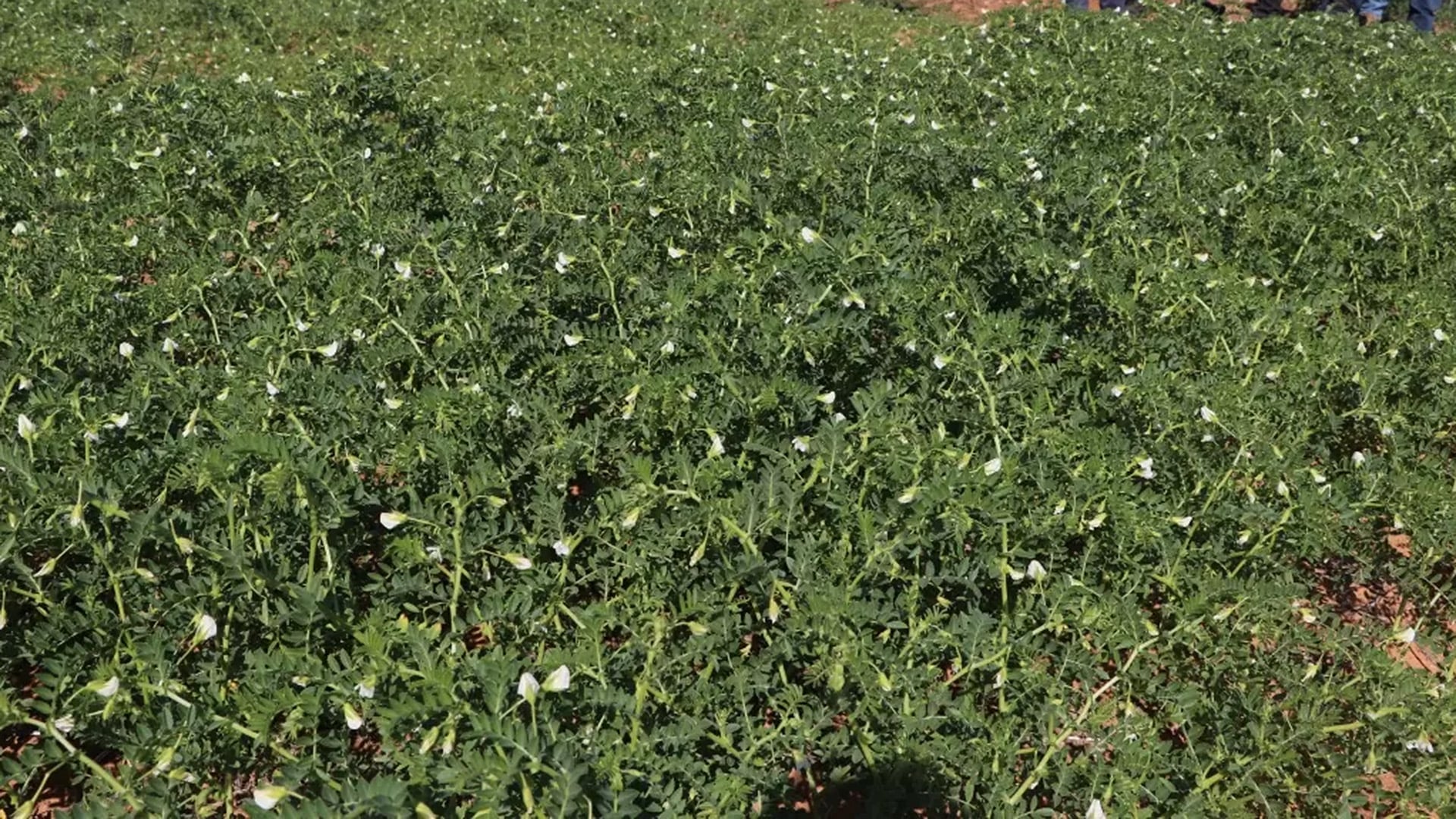START
FINISH
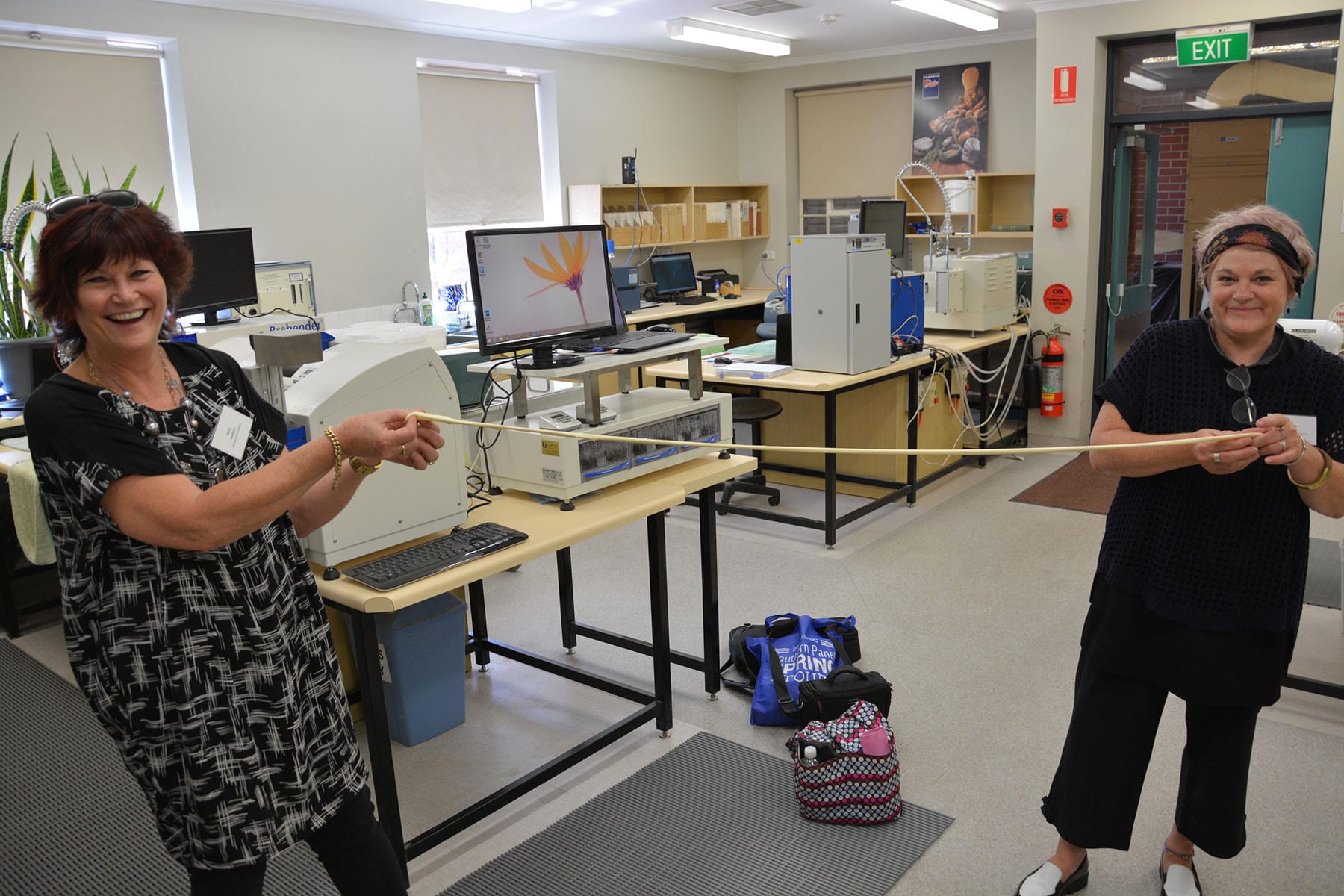
Summary
The grains industry is experiencing a significant skills shortage. This project surveyed teachers and career advisors to gauge how they advise students and then built understanding of career pathways in the grain industry through a professional development event. The bus tour featured visits to universities, research institutions and a malting facility, presentations by educators and current students, and a dinner where teachers and career advisers networked with grain industry representatives. Participants received a range of materials to support them in guiding students towards a career in the grain industry.
Background
According to the Australian Farm Institute, Australian universities are producing about 700 agriculture graduates each year for a job market exceeding 4000. This represents a major succession issue.
Research Aims
The core objectives of the project were to:
• Conduct an environmental scan identifying how careers advisers inform and inspire students.
• Survey South Australian careers advisers to gauge how they advise students.
• Promote a range of grains and agricultural career pathways, including research, agribusiness, agronomy, industry, communication, education, policy, farming, laboratory technician, mechanical engineering, computer technology and food manufacturing to SA teachers and career advisers.
• Link teachers and career advisers to local contacts and organisations in the grains industry.
• Educate careers advisers to adequately advise students making course and career choices through certificate or university pathways.
• Equip teachers with current tertiary course information relevant to the grains industry.
In The Field
In the first phase of the project, a survey was conducted to discover 50 teachers and careers advisers’ attitudes, skills and awareness of the Australian grains industry.
The second phase consisted of a full-day professional development event for career advisers and teachers.
The day included talks from universities, regional training providers, and on-the-job trainers on career pathways, presentations from people in communications, mechanical engineering, science and research, tours of the University of Adelaide, The Plant Accelerator, the South Australian Research and Development Institute, The Australian Centre for Plant Functional Genomics, Australian Grains Technologies bread quality laboratories and Joe White Malting.
Careers targeted were molecular biology, sustainable science, grain research, marketing, food production, plant breeding, cereal chemistry, bulk handling, and grain nutrition.
The day concluded with an industry dinner with a local produce theme where teachers interacted with grains industry guests. Guest speaker Nigel Crawley spoke on the Careers Harvest website, Kathleen Allan (GRDC) spoke on her agricultural career and the vision for the industry and Michael Treloar (SAGIT) spoke on opportunities in grains in SA.
Each participant received a showbag including relevant resources from Careers Harvest, universities, registered training Organisations, TAFE, PICSE and PIRSA. This information was included to assist careers advisers in future. A grains kit was also included which featured samples of 18 different Australian grains as a reminder that the grains industry covers a whole range of careers from the actual seed to the store.
Results
The survey found that most teachers and careers advisers had a positive perception of the agricultural and grains industry. However, 57 per cent self-rated themselves as having fair or little knowledge of agricultural career pathways and commented that they were not overly confident giving advice to students on the diversity of jobs in this area. The advisers who rated themselves as good or excellent in giving advice were predominantly from regional areas, had roles in teaching agriculture and had established links to the industry which were utilised for support.
Overall, 85 per cent of those surveyed recognised that there is a skills gap within agriculture. However, most suggested that only 0 to 30 per cent of their school population would consider a career in the industry. If a student is interested in agriculture, the teachers are most likely to refer them to the University of Adelaide, TAFE or certificate/traineeships. Students are also directed to support information on websites, careers booklets and university brochures. There was no recollection of existing agricultural careers support materials such as Careers Harvest, which is the industry’s most comprehensive careers guidance tool. Moving forward, those surveyed suggested that to best engage students in the grains industry, there need to be field trips, one-on-one discussions with informed people and better work experience initiatives.
All 22 teachers and advisers who attended the event said they will change the way they will advise students on careers in the grains industry because of the event and they all would recommend the event to a colleague. They all reported a good or excellent knowledge of careers following the event and 93 per cent said attendance at the event has changed their perception of the grains industry.
Project Participants
AgCommunicators: Belinda Cay, Rebecca Jeisman, Deanna Lush and Alistair Lawson
GRDC: Kathleen Allan
The Problem
There is a significant skills shortage in the agricultural industry.
The research
High school career advisers were educated on careers in the grains industry through a professional development event.
More information
Belinda Cay, AgCommunicators
T: 0423295576
E: [email protected]
Value for Growers
Teachers and career advisers are key sources for the provision of career pathway information to students.
This project has helped to change the perception of the grains industry amongst South Australian teachers and careers advisers and improved their knowledge of career paths in the industry. The knowledge gained during the event, along with the resources provided to teachers, will contribute to increasing the number of students who choose to take on a career within the grains industry and reduce the skills shortage.
The More than Gumboots and Tractors program was subsequently rolled out nation-wide through the GRDC.

